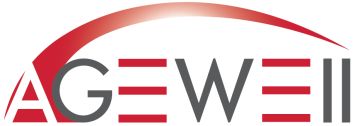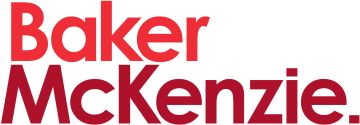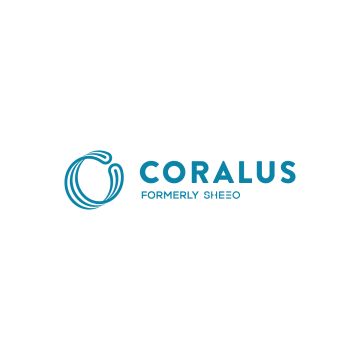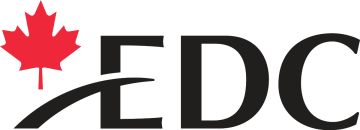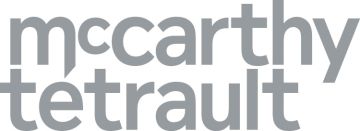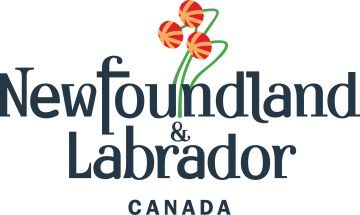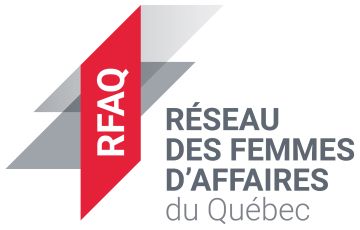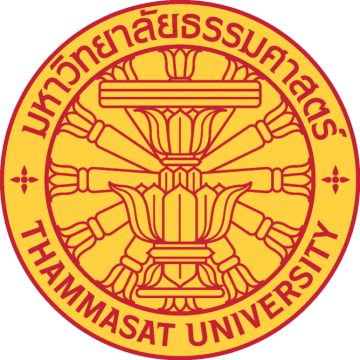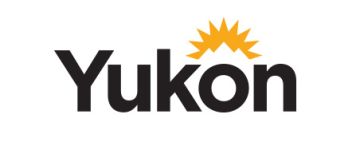MISSION BROCHURE ENGLISH
MISSION BROCHURE FRENCH
MISSION BROCHURE KOREAN
MISSION BROCHURE THAI
APF Canada, with strong support from the public and private sectors, will lead Smarter Living: The Canadian Women-only Business Mission to South Korea and Thailand in late Fall 2023.
This mission is part of the Foundation’s 2023-2025 mission series, Northeast X Southeast: Advancing Partnerships Between Canada and Asia, and will focus on the cleantech, health tech, and information and computer technology (ICT) sectors to spotlight the innovations Canadian women entrepreneurs bring to these sectors. The seventh mission in APF Canada’s Women’s Business Missions to Asia Series, this unique opportunity brings together Canadian women entrepreneurs with businesses in South Korea and Thailand to promote gender-inclusive trade, support small and medium-sized enterprises (SMEs), and catalyze international partnerships between Canadian companies and these key markets in Asia.
The Canadian Women-only Business Mission to South Korea and Thailand is generously supported by contributions from the Government of Canada through Innovation, Science and Economic Development Canada.
Applications are now closed.
Mission Details:
WHERE: South Korea and Thailand
FORMAT: In-person
THEME: Smarter Living
WHAT: The mission will feature public conferences with high-level speakers from Canada, South Korea, and Thailand to discuss bilateral trade issues, gender inclusion in the economy with the goal of women’s economic advancement, and SME supports. The delegates will participate in personalized business-to-business (B2B) matchmaking, company pitches, and networking opportunities with conference attendees.
WHEN: November 26 - December 1, 2023
WHO: We encourage all women and non-binary entrepreneurs whose businesses align with the targeted sectors of this mission to apply. We especially welcome applicants from traditionally under-represented groups, such as (but not limited to) members of racialized and Indigenous communities, people with disabilities, LGBTQ2S+ folks, newcomers to Canada, and young entrepreneurs. Due to the limited delegate spots available, the selection process is competitive, and not all eligible applications can be accepted.
WHY SOUTH KOREA AND THAILAND?
South Korea and Thailand present ideal market opportunities for Canadian businesses, particularly in the sectors of cleantech, health care, and ICT. Both countries have strategically prioritized these industries in their economic strategies and offer attractive incentives to foster growth and collaboration. By capitalizing on these complementary markets, Canadian companies can establish a strong foothold and tap into the potential for long-term success and mutually beneficial partnerships.
South Korea is an attractive market for Canadian companies due to its C$1.8-trillion economy, world-class digital infrastructure, innovation ecosystem, highly skilled workforce, and business-friendly environment. The country is well integrated into global supply chains and has free trade agreements (FTAs) with 58 key economies. Notably, South Korea is the only country in Asia with a bilateral FTA with Canada.
In 2022, the bilateral merchandise trade between Canada and South Korea amounted to C$21.9 billion, while the bilateral services trade in 2021 was C$1.6 billion. South Korea's top exports to Canada in 2022 were automobiles, mechanical equipment, and pharmaceuticals; its main imports from Canada were petroleum products, mineral ores, and meat. The priority sectors in service trade in 2021 were tourism and government services. According to APF Canada’s Investment Monitor database, bilateral investment between Canada and South Korea reached C$3.6 billion in 2022. Canadian investors showed interest in automobiles and financial services, while South Korean investors primarily invested in petroleum, automobiles, and electricity.
Clean technology presents an attractive sector, as the South Korean government supports cleantech and renewables, driven by the country's ambition to achieve carbon neutrality by 2050. While solar and wind technology are well-established in South Korea, domestic manufacturers are currently focusing on enhancing their hydrogen capabilities, particularly in the transportation sector. Health-care technology is another high-opportunity sector in South Korea. The biopharmaceutical industry, for example, has been identified as one of the three critical industries for innovative national growth by the South Korean government. This industry is experiencing an average annual growth rate of 13 per cent, and foreign investors in this sector enjoy exemptions from income, acquisition, and property taxes.
Thailand offers significant trade opportunities for Canadian companies due to its status as the second-largest economy in Southeast Asia. It boasts a strong domestic consumption base and a thriving export-oriented manufacturing sector. Moreover, its strategic location, at the centre of the region, enables companies to access a massive consumer market of 600 million people within a 3,000-km radius, fostering prospects for cross-border trade and investments.
In 2022, the bilateral merchandise trade between Canada and Thailand amounted to C$6.4 billion, while service trade reached C$314 million in 2021. Notably, Thailand's key exports to Canada in 2022 included mechanical appliances, electrical equipment, and rubber, while Canada primarily exported fertilizers, pulp, and cereals to Thailand. The tourism sector played a central role in bilateral service trade in 2021.
Anticipated growth in Canada’s merchandise and services trade with Thailand is expected upon the completion of the ASEAN-Canada FTA negotiations, which encompass Thailand. Furthermore, APF Canada Investment Monitor data reveals that bilateral investment between Canada and Thailand amounted to C$7.4 billion between 2003 and 2022. Canadian investors have shown particular interest in the financial sectors, mining, and oil and gas industries; Thai investors have predominantly focused their funds on oil and gas, fishing, and animal production sectors.
Under the government's ‘Thailand 4.0’ policy, health care has been identified as a priority sector for investment. Thailand aims to become a regional medical hub, particularly for medical tourism and medical device manufacturing. By developing its domestic medical sector, the country also seeks to address the needs of its aging population. Cleantech will also play a crucial role in Thailand's pursuit of the government's Climate Change Act, which aims to achieve net-zero emissions by 2050. This effort entails decarbonizing all sectors, with a particular emphasis on the energy sector, which is currently the highest contributor to carbon emissions. From 2023 to 2027, Thailand will provide incentives to foreign investors to invest in high-tech, innovative, and green sectors, including electric vehicle battery swapping stations, hydrogen vehicle manufacturing, and hydrogen production.
OBJECTIVES:
- To mutually showcase technology innovations in cleantech, health tech, and ICT from Canada, South Korea, and Thailand
- To provide networking opportunities for Canadian women in business with counterparts in South Korea and Thailand
- To provide an opportunity to share insights and best practices on women’s economic advancement
- To facilitate business partnerships between Canadian delegates and their South Korean and Thai counterparts
BENEFITS:
Individualized B2B matching, curated networking, and promotional opportunities. There is no fee to participate as a delegate. This program is generously funded by the Government of Canada’s Women Entrepreneurship Strategy Ecosystem Fund.
Expenses covered by the program:
- Round-trip economy class airfare to/from Asia, with travel between South Korea and Thailand as required
- Airport tax and facility fees
- Accommodation, ground transportation between official program events and locations, and meals during the official program in South Korea and Thailand
- Admission fees for scheduled activities in South Korea and Thailand that are part of the official program
The following expenses are not covered by the program:
- Travel between the participant’s home and the designated airport of origin, and any excess baggage fees incurred during the program
- Overseas travel insurance — participants are responsible for their own medical expenses in South Korea and Thailand
- Loss or damage to personal belongings
- Travel upgrades or extensions to the official program
Please note: Participants are responsible for all personal expenses, including a passport valid for 6 months prior to departure, travel vaccinations, travel to/from the designated Canadian airport, accommodation and meals in Canada, and purchase of personal items/souvenirs prior to or during the program.
COMMITMENTS: Successful applicants will be required to participate in all components of the mission, including:
- Pre-mission training meeting(s)
- All scheduled B2B meetings
- All official program events as scheduled by the organizer
SELECTION CRITERIA:
Eligible applicants must operate:
• A for-profit organization such as:
- An individually operated business
- A partnership
- A social enterprise
- An incorporated company, corporation, co-operative, or
- An Indigenous organization
• A women-owned and/or women-led business*
• A small to medium-sized enterprise (SME) with fewer than 500 employees, and
• A business in operation for a minimum of two years
Eligible businesses must
- Be export-ready and have demonstrated potential to succeed in Asian markets
- Have a commercialized product or service or one close to being commercialized
- Have conducted research on foreign markets and opportunities, especially preparatory work concerning the South Korean and Thai markets
- Have allocated resources (human, material, time, and financial) toward internationalization
- Have a defined business model and financial forecasts (1-2 years) for discussions with potential third-party investors
The following are ineligible:
• Not-for-profit organizations, and
• Government entities
Priority will be given to entrepreneurs who:
- Have generated revenues (sales, capital investment, etc.) exceeding C$100,000 per year for the past three years
- Have made efforts to localize their product or service for an international market (not necessarily in Asia)
- Have developed proprietary technology with the potential for long-term competitiveness
- Are defining their primary product/market fit and establishing reasonable pricing models with a sales strategy/pipeline
* For the purposes of this program, please note:
- “Women” is inclusive of those who self-identify as women (including ciswomen or transwomen) or gender non-binary, gender-fluid, or gender nonconforming people. “Ciswomen” refers to someone whose gender corresponds to their assigned sex.
- “Women-owned” is defined as an enterprise where one or more women own and have owned the majority of the company (more than 50%) for at least two years.
- “Women-led” indicates an enterprise with at least one woman founder or co-founder in an executive leadership position who, for at least two years, has ownership in the company and has been in a position to control and manage the operation and daily business of the entity and plays an active role in strategic decision making. “Active role in strategic decision making” indicates said woman is involved in decision-making relating to the establishment of priorities, objectives, and goals for the overall operations of the business.
For mission inquiries, please contact:
A.W. Lee, PhD
Director, Inclusive International Trade,
Asia Pacific Foundation of Canada, Central Canada Office
205-375 University Ave.
Toronto, Ontario, Canada M5G 2J5
a.w.lee@asiapacific.ca

